Archive for October, 2012
Украинa, данные национальных экзит-поллов.
28 Oct 2012
|
Название партии |
Национальный exit-poll (ДемИнициативы, КМИС, Разумков) |
Всеукраинский телевизионный (TNS, SOCIS & Интер,ICTV) |
Research & Branding Group |
Рейтинг (5-й канал) |
|
Партия регионов |
28,1% |
30,48% |
31,6% |
27,6% |
|
ВО “Батькивщина” |
24,7% |
23,87% |
23,7% |
23,4% |
|
“УДАР” |
15,1% |
14,67% |
13,2% |
14,3% |
|
Коммунистическая партия Украины |
12,3% |
12,07% |
13% |
12,5% |
|
Всеукраинское Объединение “Свобода” |
11,8% |
11,92% |
11% |
12,5% |
Ucraina, un Paese profondamente diviso al voto.
28 Oct 2012 Il pugile ed il calciatore. Gli “eroi” nazionali, oggi divisi dalle elezioni legislative. Vitaly Klitschko ed Andriy Shevchenko sono i due volti nuovi della politica ucraina, da anni dominata – dopo l’eclisse del “padre” della “rivoluzione arancione” Viktor Jushenko – dallo scontro senza confini tra il presidente Viktor Janukovich e l’ex premier, ora in carcere, Julija Timoshenko. 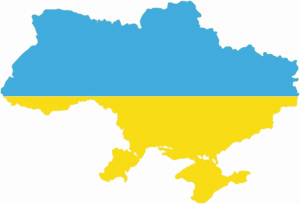
L’ex campione del mondo dei pesi massimi è il leader del partito Udar (ossia, colpo) ed è destinato a diventare il capo dell’opposizione. Se non farà errori probabilmente sarà lui ad essere il candidato da battere alle prossime presidenziali.
L’ex capocannoniere di Milan e Chelsea è, invece, il “numero due” nella formazione “Avanti Ucraina!” di Nataliya Korolevskaya e se la sua compagine supererà la fatidica barriera del 5% per avere una rappresentanza in Parlamento Shevchenko diventerà deputato.
Non è la prima volta che nell’ex Urss le “stelle” dello sport entrano in politica. Oleg Blokhin, bomber indimenticabile della grande Dinamo poi selezionatore della squadra nazionale agli ultimi Europei, è stato per ben due volte parlamentare tra le file dei social-democratici. Pochi giorni fa un altro ex calciatore, Kakha Kalaladze, già compagno di squadra di Shevchenko alla Dinamo Kiev ed al Milan, è stato addirittura nominato ministro dell’Energia e vice-premier nel nuovo governo georgiano.
“Andiamo in Parlamento – ha picchiato duro Klitschko, con un passato da eletto nel Consiglio comunale di Kiev ed un forte impegno nel sociale, – non per cambiare i maiali, ma per togliere loro la mangiatoia!”
Assai più diplomatico Shevchenko, che pare trovarsi non a proprio agio nel clima da rissa imperante da sempre sulla scena politica nazionale. “Vogliamo cambiare il Paese – ha spiegato l’ex bomber -. Il mio compito è costruire le infrastrutture”. Con Berlusconi Shevchenko si telefona, ma per ora non ha chiesto consigli.
I due “eroi” ucraini in passato hanno collaborato per varie iniziative sociali, ma questa volta si sono praticamente ignorati. Anzi, Klitschko ha rifiutato di partecipare ad un incontro pubblico col calciatore per dibattere su giovani e sport.
La ragione della sua decisione è semplice. “Avanti Ucraina!”, formatasi da una costola fuoriuscita da “Patria”, la compagine della Timoshenko, rischia di fare il gioco della formazione di Janukovich, “il partito delle Regioni”, togliendo voti all’opposizione. I sondaggi sono chiarissimi. A fronte di un 24% di indecisi, i “blu” del presidente sono al 23%, Udar al 16, “Patria” al 15 ed i comunisti al 10. Solo l’8,8% degli ucraini crede che queste legislative saranno pulite. Migliaia sono gli osservatori presenti.
Sia Unione europea che Russia guardano alla consultazione con interesse. L’Ucraina è ad un passo dalla firma di uno strategico patto di Associazione con Bruxelles ed è stata invitata allo stesso tempo da Mosca a far parte della nascente Unione doganale, una mini-Urss economica, simile alla CEE. Se il “giro di vite”, imposto al Paese da Janukovich, non è piaciuto agli occidentali Vladimir Putin spera adesso di riportare Kiev nella propria orbita.
L’economia dell’ex repubblica sovietica, però, non va. Un prestito dell’Fmi è bloccato da anni e si rincorrono voci di una prossima svalutazione della grivnia.
Questa volta Janukovich dovrà stare più attento. L’opposizione ha trovato un peso massimo e Klitschko si prepara già ai proverbiali corpo a corpo alla Rada, famosa in tutto il mondo per le più incredibili zuffe tra deputati.
Giuseppe D’Amato
Ukraine, a transparent vote?
27 Oct 2012 The parliamentary election in Ukraine will be “transparent and democratic,” President Victor Yanukovych has said. Following an example from Russia, Ukraine has installed webcams in all polling stations for maximal transparency.
The Organization for Security and Co-operation in Europe (OSCE) has sent 635 election observers to the country – more than ever before. In total, some 3,800 foreign observers monitor the vote. But only 8.8 percent of Ukrainians say the ballot will be fair, according to the Kiev-based Democratic Initiative Fund. 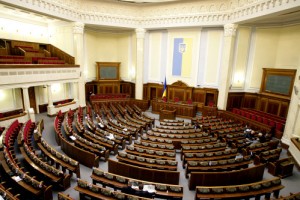
“The significant lack of political pluralism on television is very worrisome and requires immediate action,” EU foreign policy chief Catherine Ashton highlighted in a statement. The elections “will be a litmus test of Ukraine’s democratic credentials.”
The last time that Ukraine had a mixed election system – electing half of its 450 members of parliament in geographic districts, the other half through party lists – was 2002. Ten years ago, the opposition did well on the party lists, but failed to muster a majority after doing poorly in the single-mandate districts. Experts think that history will repeat itself.
The parliamentary vote marks the halfway point in Yanukovych’s first presidential term. Yanukovych’s approval rating is 12.6 percent, down from 37.8 percent in 2010, according to the Razumkov Center for Economic and Political Studies.
Polls suggest his party, the Party of Regions, will preserve its hold on the 450-seat legislature. The Party of Regions has 23.3 percent backing, compared with 16 percent for world boxing champion Vitaly Klitschko’s UDAR, 15.1 percent for Tymoshenko’s Fatherland and 10.1 percent for the Communists.
Control of Parliament will also be a major factor in the higher-stakes presidential contest in 2015. Vitali Klitschko the leader of the opposition UDAR party, seems to be a new future candidate with good chances to win.
Andriy Shevchenko, 36, a former AC Milan striker, runs for Ukraine Forward, which aims to pass parliament’s 5 percent entry barrier. That’s hurting opposition united under jailed ex-Prime Minister Yulia Tymoshenko and improving the prospects of Party of Regions.
The country has become increasingly isolated since Yanukovich’s election in a runoff with Tymoshenko in 2010. And financial analysts say that the country’s economy is in trouble again as a result of flagging demand in Europe, particularly for steel, Ukraine’s main export.
The Georgian parliament approved the new government of Georgia, led by Prime Minister Bidzina Ivanishvili.
This is its composition:
Defense Minister and Deputy Prime Minister – Irakli Alasania
Energy Minister and Deputy Prime Minister Kakha Kaladze 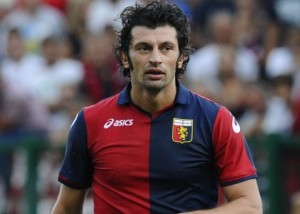
Minister of Finance – Nodar Khaduri
Interior Minister – Irakli Garibashvili
Minister of Justice – Thea Tsulukiani
Minister of Foreign Affairs – Maya Panjikidze
Minister for Reintegration – Paata Zakareishvili
Minister for Infrastructure and Regional Government – David Narmania
Economy Minister – Giorgi Kvirikashvili
Minister of Labour, Health and Social Affairs – David Sergeenko
Minister of Environment – Khatuna Gogaladze
Minister of Education and Science – Giorgi Margvelashvili
Minister of Refugees and Accommodation – David Darakhvelidze
Minister of Youth and Sports – Levan Kipiani
Minister of Penitentiary – Sozar Subari
Culture Minister – Guram Odisharia
Agriculture Minister – David Kirvalidze
State Minister for Diaspora Affairs – Kote Surguladze
State Minister for European Integration – Alexi Petriashvili.
Minister for Employment – Kakha Sakandelidze
Talks about constitutional changes have already started in the new parliament. “In order to avoid one party government, it is already necessary to make changes in the relevant part of the constitution and create applicable government model. However, we will make these changes after public discussions. We will try hard to take into account all sensible proposals and interests. The constitution will establish the model that will guarantee stability of the state,” said Prime Minister Ivanishvili. The new Constitution will give political opposition mechanisms for controlling government activities.
Under current legislation the change in the Constitution can be made if 2/3 of lawmakers (100 MPs) vote for it. Ruling Georgian Dream currently has 85 seats, while the opposition United national Movement – 65 mandates.
The main goal of the new government will be de-occupation of Georgia. “At the same time, we will look for the ways of talking to Abkhazians and Ossetians. With the support of international society we will manage to start negotiations with Russia about economic and cultural affairs,” said Ivanishvili. The territorial integrity of the country is vital for the government to be effective. Important steps will be taken towards integration with the EU and NATO.
«Холодные отношения с Западом, продолжительная ссора с Японией, потеря почти всех союзников в арабском мире. Остаются, конечно, Иран и Китай, но с партнерами из Поднебесной уже долгие годы невозможно заключить ключевого для российской экономики договора о приемлемых тарифах на газ… 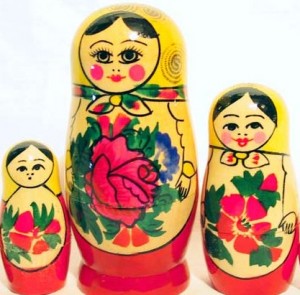
На традиционный вопрос о том, куда идет Россия, в эти сложные месяцы получен однозначный ответ: к самоизоляции…
Даже из Европы слышно, как нарастает громкость традиционной для России фразы: «Мы слишком большие, поэтому нас никто не любит!». …
не верьте пропагандистским бредням. Людей, которые ведут себя достойно, любят повсюду. Предрассудки и глупые клише в современном мире долго не живут. Историям о том, что зимой медведи гуляют по московским улицам, давно никто не верит. Но заморозки в отношениях с Россией, к сожалению, ощущаются. И очень не хочется думать, что нас снова ждет политическая зима».
Статья – Джузеппе Д’Амато Московский Комсомолец № 26074 от 23 октября 2012 г. Giuseppe D’Amato Moskovskij Komsomolets.
Dopo anni il grande “Progetto” sta andando in porto. Il Cremlino affianca alla monopolista del gas Gazprom il nascente gigante del petrolio Rosneft. La Russia si afferma così sempre più come esportatrice di materie prime. Ma non solo. L’obiettivo primario di riuscire a condizionare in qualche modo i prezzi a livello internazionale potrebbe avvicinarsi.
Da un paio di settimane il mondo della finanza e quello dell’energia sono letteralmente in subbuglio per la seconda maggiore fusione di compagnie petrolifere nella storia dopo quella del 1999 tra la Exxon e la Mobil. 
Il colosso petrolifero Bp ha appena firmato l’accordo di massima con Rosneft per la vendita del 50% della joint venture TNK-BP. In cambio i britannici otterranno il 19,75% del capitale del neogigante russo e 12,3 miliardi di dollari in contanti. In futuro potranno contare su due posti (su un totale di nove) nel consiglio di amministrazione della Rosneft.
In parole povere la Bp esce da una società mista (la TNK-BP) con dei litigiosi miliardari russi, con cui i rapporti erano stati tesissimi, ed acquisisce quote in una società semi-pubblica – dove il Cremlino farà il bello ed il cattivo tempo -, ma con cui sono previsti importanti progetti per lo sfruttamento delle risorse dell’Artico.
La Rosneft chiaramente compra anche la quota di TNK-BP in mano ai miliardari russi, diventando la maggiore compagnia mondiale quotata per l’estrazione di petrolio (oltre 4 milioni di barili al giorno). L’intera Arabia Saudita ne produce circa 10.
Dopo il crollo dell’Urss nel 1991 il governo federale era riuscito a mantenere solo il controllo del mercato del gas, poiché troppo condizionato dalle poche condotte esistenti verso occidente. Quello del petrolio era finito in mani private o addirittura straniere.
La triste vicenda con al centro l’ex oligarca Michail Khodorkovskij, proprietario della maggiore compagnia privata del Paese – la Yukos -, ha riaperto i giochi. Dopo che il magnate è stato incarcerato in Siberia e la sua società smembrata, la Rosneft ne ha incamerato i bocconi più ghiotti a partire dal 2004.
Il Cremlino, in sintesi, riesce a riportare sotto il proprio controllo un’ampia fetta del mercato del petrolio nazionale. La “mente” dell’operazione è stata Vladimir Putin, ma il braccio operante è sicuramente il potentissimo Igor Sechin, anch’egli con un passato nel Kgb.
Tutti gli attori in causa alla fine paiono guadagnarci qualcosa, ma chissà se i compratori del petrolio russo saranno contenti. E’ difficile che lo siano, considerando gli enormi volumi che la Rosneft sarà in grado di gestire. Soltanto i prezzi alti dell’“oro nero” potranno permettere sia di garantire il bilancio statale russo (oggi il 55-60% delle entrate totali viene dal settore energia) sia di poter far fronte alle spese stratosferiche di estrazione nelle zone più remote del pianeta.
Alcuni analisti, però, buttano acqua sull’entusiasmo. I costi della fusione sono altissimi e negli ultimi anni la Rosneft non ha registrato profitti come la TNK-BP.
On October 9th at 2 p.m. meeting in support of Radio Liberty at the US embassy in Moscow. On October 10th journalists.

—
To the International Committee of the U.S. Congress
U.S. Secretary of State Hillary Clinton
Senator Benjamin Cardin
September 27, 2012
Dear Mr. Cardin, dear Ms. Clinton
We deeply regret to officially announce that following the decision of the management Radio Liberty stops its medium- wave broadcasts.
It has been done at the moment, when the regime of Vladimir Putin launched a new attack on the freedom of speech and Democratic movements in Russia. Human rights organizations are declared “foreign agents”, USAID stops its work in Russia.
Radio Liberty has existed for more than 60 years and for the whole generations of 1960- 80th was a source of accurate information. Current situation in Russia looks more and more like USSR. Current domestic and foreign policy is determined by people, who came from KGB and it is becoming clear, that we cannot lose the traditions of the station, which has always been taking very active civil position based on the universal values of freedom, democracy and human rights. In today’s Russia all these values are being attacked by the government.
Reorganization of Radio Liberty work was carried out in a form of shameful and abusive for its employees “special operation”. Any KGB could not harm the image of the radio and the United States in Russia as did US managers- the President of the Radio Liberty Steven Korn and the vice- president Julia Ragona.
They have ignored BBG’s (Broadcasting Board of Governors) findings confirming the effective work of the Russian service of Radio Liberty (http://www.bbg.gov/wp-content/media/2012/02/FY-2013-BBG-Congressional-Budget-Request-FINAL-2-9-12-Small.pdf). A team of journalists, who used to create radio and internet content, a team that used to bring hundreds of thousands of spectators of democratic rallies broadcasts in 2011-2012 is dismissed.
Mr. Korn and Ms. Ragona’s staffing solutions were conducted without even slightest consideration of the creative contribution and potential of each employee. Dismissed are the professionals with stainless reputations. Some of the journalists have left Moscow office of Radio Liberty deliberately on moral grounds.
Additionally a new head of the Russian service is assigned a person, who received negative assessment as a manager at her previous jobs. A person never previously engaged in a kind of work offered by the Radio Liberty.
Mass dismissals of journalists have disorganized the work of the broadcast and the work of the radio’s website for extended period.
Scandalous publication about the activities of American management team of the radio appeared in Russian and foreign press. The managers themselves could not explain their decisions to the Russian society. These decisions look very strange, while the financing of the Russian service for years 2012- 2013 has not been reduced, but in fact even increased.
From now on, every time Russian authorities will decide to close one or another independent media, they will refer to for them very convenient “experience” of the management of Radio Liberty.
We do not have any information about a new concept of multimedia portal that was proposed instead of public over- the –air and internet broadcasting and we are concerned that this new concept might be contradictory to the goals and missions established by the U.S Congress and BBG and to the goals and missions of Radio Liberty in Russia.
We ask the Congress to set up a special commission to investigate the activities of the Radio Liberty’s management, which caused such damage to the image of the United States in Russia and review the decisions that have been made.
With kind regards,
Lyudmila Alekseeva, Chairwoman of the Moscow Helsinki Group
Sergei Kovalyov, Chairman of the Russian “Memorial”, the chairman of the Public Commission for the Preservation of the Heritage of Academician Sakharov — Andrei Sakharov Foundation
Vladimir Bukovsky, Writer, a former political prisoner in the Soviet Union
Tatiana Yankelevich, Center Associate, Davis Center for Russian and Eurasian Studies Harvard University, Cambridge, MA, daughter of Elena Bonner and Andrei Sakharov
Pavel Litvinov, a former political prisoner in the Soviet Union
Alexei Simonov, the President of the Glasnost Defense Foundation
Lev Ponomarev, Executive Director of the Russian movement “For Human Rights”
—
What happened at Radio Liberty in Russia. Elena Rykovtseva in Novaya Gazeta.
Россия, еда отравлена коррупцией.
8 Oct 2012«Продукты — дороги, да еще и не очень качественны. Клиенты — беззащитны перед наглостью торговцев-монополистов. Проверки со стороны государственных контролирующих организаций — весьма сомнительны…
Каждый раз, бывая в ваших магазинах и супермаркетах, я задаю себе один и тот же вопрос: когда Россия выйдет из явно затянувшегося этапа постсоветского выживания и наконец станет цивилизованной страной для собственных потребителей? … 
… Когда открываете свой кошелек у кассы, часть ваших честно заработанных денег идет на оплату яхт государственных функционеров…
…цена (продуктов) определяется в зависимости от финансовых возможностей клиентов, а не от реальной ценности товара на рынке!
А что? Русские богатые, пусть платят! Тем более что ваш покупатель часто думает так: если продукт дорогой, то он более качественный, он лучше…
Лучше, извините, чего? Или для кого лучше? … »
Статья – Джузеппе Д’Амато Московский Комсомолец № 26061 от 8 октября 2012 г. Giuseppe D’Amato Moskovskij Komsomolets.
Vladimir Putin turns 60. His numbers.
7 Oct 20121 — The number of rare tiger cubs Putin was given on his birthday in 2008. He declined to reveal who gave him the cubs. But Putin Chechen leader Ramzan Kadyrov, a Putin appointee, is known to be the proud owner of a pet tiger.
2.6 — The price in U.S. dollars of a barrel of oil in 1952, the year Putin was born in Leningrad.
6 — The number of years that have passed since Journalist Anna Politkovskaya was shot dead outside her apartment in Moscow on October 7, 2006, Putin’s 54th birthday.
11 — Putin’s age when he began learning sambo and judo. He holds a black belt in the latter. 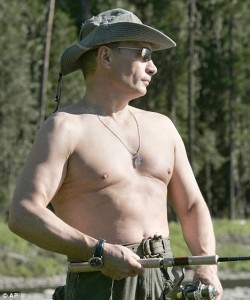
12 — The number of female Moscow State University students who posed in lingerie to mark Putin’s 58th birthday in 2010 in a racy calendar.
16 — The number of years Putin served in the KGB. Five of these Putin worked in Dresden in East Germany. In 1991, he officially retired from the KGB as a lieutenant colonel and became deputy mayor of St. Petersburg, serving under his old law professor Anatoly Sobchak.
20 — The number of palaces, dachas, and country retreats at Putin’s disposal, according to a report drafted by opposition figure Boris Nemtsov. The report, released earlier this year, is ironically titled “The Life of a Galley Slave,” in reference to a phrase Putin once used to describe his life as president.
26.1 — The price in U.S. dollars of a barrel of oil in December 1999 when Putin became Russia’s acting president after Boris Yeltsin’s resignation.
29 — The age of Alina Kabayeva, one of Russia’s most successful rhythmic gymnasts, now a State Duma deputy for United Russia. Russian media has reported on widespread — and unconfirmed — rumors that Kabayeva is Putin’s mistress.
54 – The age of Lyudmila Putina, Putin’s estranged wife.
58 — The number of airplanes and helicopters at President Putin’s disposal, according to Nemtsov’s “Life of a Galley Slave” report.
87.9 — The price in U.S. dollars of a barrel of oil on the eve of Putin’s 60th birthday.
140 — The number of characters used in an impromptu Twitter flash mob last year to mark Putin’s 59th birthday, in which the opposition popularized the “Thank Putin for That” hashtag (#CпасибоПутинуЗаЭто). It was followed by a stream of ironic jibes at the president.
1600 — The time on October 7 that the opposition plans to announce the winner of the most “creative” birthday present for the president. The voting will take place via Facebook on a page called “Let’s Help An Old Man Retire.” It is being organized by Rosagit, a group affiliated with anticorruption blogger Aleksei Navalny.
2002 — The year Putin received for his birthday a dog that could bark “Vova” — the diminutive and affectionate form of his first name, Vladimir.
2,370 — Russia’s average monthly salary in rubles when Putin came to power.
4,230 — The number of days that Putin will still be in the Kremlin if he successfully serves two more terms, until May 7, 2024. He would be 72 years old.
20,702 — The average Russian salary in rubles in 2011, according to Rosstat.
120,000 — Putin’s official salary in dollars.
141.9 million — Russia’s current population. Russia has been in the grips of a demographic crisis spurred by its low male life expectancy and low birth rate, although there is evidence that Russia is beginning to reverse these trends.
146.3 million – The Russian population when Putin came to power.
260 billion — Russia’s GDP in U.S. dollars when Putin first came to power.
1.86 trillion – Russia’s GDP in U.S. dollars in 2011.
RFE/RL correspondent Tom Balmforth
Source: Radio Free Europe/Radio Liberty
Il partito vicino al presidente Saakashvili ha clamorosamente perso le legislative. Troppe sono state nel recente passato le promesse mancate in campo socio-economico insieme alla macchia indelebile di aver scatenato nell’estate 2008 una disastrosa guerra, persa contro la Russia per riconquistare la provincia ribelle dell’Ossezia meridionale. 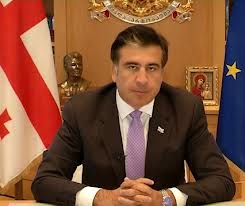
Non appena le litigiose opposizioni sono riuscite a trovare un vero leader i georgiani gli hanno accordato fiducia. La capitale Tbilisi ha votato compatta per il miliardario Ivanishvili, mentre la provincia solo in parte. Il 44enne Michail Saakashvili rischiava di diventare eccessivamente ingombrante non solo per la sua prestanza fisica.
Il 2013 è un anno cruciale per il Paese caucasico. L’eroe della “rivoluzione delle rose” concluderà il suo secondo ed ultimo mandato presidenziale (diventando ineleggibile) ed entrerà in vigore la nuova Costituzione che ridistribuisce i poteri. La Georgia si trasforma in repubblica parlamentare con il primo ministro ad avere prerogative quasi più importanti del capo dello Stato. Grande era, quindi, il pericolo che a Tbilisi andasse in onda una “mossa alla Putin” in cui un leader esce dalla porta principale e rientra dalla finestra.
Diciamolo subito: chi scrive non ha mai avuto simpatia per la “rivoluzione delle rose”, primo cambio di dirigenza pro-occidentale attraverso la piazza nello spazio ex sovietico nel 2003, in tutto simile all’analogo colpo di mano di Belgrado contro Milosevic del ‘99. Saakashivili andò al potere rovesciando il suo maestro e mentore, nonché padrino di suo figlio, Eduard Shevardnadze, uno dei pochi democratici della leadership sovietica che volle la fine della Guerra Fredda. L’uso sapiente dei nuovi mass media e l’appoggio giusto nelle cancellerie statunitense ed europee fecero passare l’ex ministro degli Esteri di Gorbaciov per “un dittatore”, un “dinosauro d’altri tempi”, dimenticando invece che era il garante di una precaria pace in un Paese sconvolto dalla guerra civile e dalle mafie. 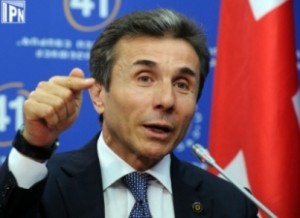
Dopo aver litigato negli anni con tutti i suoi alleati politici Saakashvili ha ora perso gli appoggi in Occidente, che ha puntato su Ivanishvili ricevendo in cambio garanzie sul futuro transito delle materie prime dal mar Caspio fino ai ricchi mercati europei. Il miliardario continuerà la politica di avvicinamento a Bruxelles ed alla Nato, ma tenterà anche di riallacciare le secolari relazioni con la Russia, vicino accomunato da una comune storia e dalla fede ortodossa.
Garantire adesso un tranquillo passaggio di potere sarà il compito primario di Saakashvili, che dovrà una volta tanto mantenere le promesse e assicurarsi un’onorevole uscita di scena.
Sin dalla primavera 1989 i georgiani hanno lottato per la democrazia e sono stati un esempio nell’Urss. Ora paiono esserci riusciti: il tempo dei kalashnikov, dei brogli elettorali e dei golpe di piazza a Tbilisi è davvero finito.
Giuseppe D’Amato
Welcome
We are a group of long experienced European journalists and intellectuals interested in international politics and culture. We would like to exchange our opinion on new Europe and Russia.
Categories
- Breaking News (11)
- CIS (129)
- Climate (2)
- Energy&Economy (115)
- EU Eastern Dimension (85)
- Euro 2012 – Sochi 2014 – World Cup 2018, Sport (43)
- Euro-Integration (135)
- History Culture (198)
- International Policy (261)
- Military (74)
- Interviews (18)
- Italy – Italia – Suisse (47)
- Odd Enough (10)
- Poland and Baltic States (126)
- Religion (31)
- Russia (421)
- Survey (4)
- Turning points (4)
- Ukraine (176)
- Российские страницы (113)
Archives
- November 2020
- October 2020
- September 2020
- August 2020
- July 2020
- May 2020
- April 2020
- March 2020
- January 2020
- December 2019
- November 2019
- October 2019
- September 2019
- August 2019
- July 2019
- June 2019
- May 2019
- April 2019
- March 2019
- February 2019
- December 2018
- November 2018
- October 2018
- September 2018
- August 2018
- July 2018
- June 2018
- May 2018
- April 2018
- March 2018
- February 2018
- January 2018
- December 2017
- November 2017
- October 2017
- September 2017
- August 2017
- July 2017
- May 2017
- March 2017
- January 2017
- December 2016
- November 2016
- October 2016
- September 2016
- July 2016
- June 2016
- May 2016
- April 2016
- February 2016
- January 2016
- November 2015
- October 2015
- September 2015
- June 2015
- April 2015
- March 2015
- February 2015
- January 2015
- December 2014
- November 2014
- October 2014
- September 2014
- August 2014
- July 2014
- June 2014
- May 2014
- April 2014
- March 2014
- February 2014
- January 2014
- December 2013
- November 2013
- October 2013
- September 2013
- August 2013
- July 2013
- June 2013
- May 2013
- April 2013
- March 2013
- February 2013
- January 2013
- December 2012
- November 2012
- October 2012
- September 2012
- August 2012
- July 2012
- June 2012
- May 2012
- April 2012
- March 2012
- February 2012
- January 2012
- December 2011
- November 2011
- October 2011
- September 2011
- August 2011
- July 2011
- June 2011
- May 2011
- April 2011
- March 2011
- February 2011
- January 2011
- December 2010
- November 2010
- October 2010
- September 2010
- August 2010
- July 2010
- June 2010
- May 2010
- April 2010
- March 2010
- February 2010
- January 2010
- December 2009
- November 2009
- October 2009
- September 2009
- August 2009
Our books




